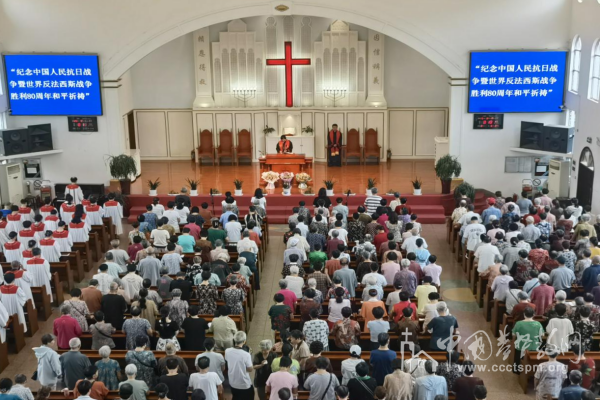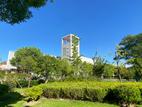Chinese churches across the country marked the 80th anniversary of VJ Day, the victory in World War II, known in China as the victory in the War of Resistance Against Japanese Aggression and the World Anti-Fascist War, with peace prayers and commemorative activities.
VJ Day, or Victory over Japan Day is observed annually on August 15, marking Japan's surrender to the Allied forces in 1945, which brought World War II to an end.
On August 13, 2025, the China Christian Council and the Three-Self Patriotic Movement (CCC&TSPM) called on churches nationwide to hold "Peace Prayers" on August 15–17. The statement emphasized that Christ is the "Prince of Peace" and encouraged believers to honor history, remember the sacrifices of the past, cherish peace, and actively contribute to building a harmonious future. Participants were invited to pray for world peace, humanity's well-being, and national prosperity and stability.
In response, local Christian councils, congregations, and theological institutions organized a variety of events, including prayer meetings, historical retrospectives, exhibitions, lectures, and cultural programs highlighting the contributions of Christians during the war. In Beijing, Kuanjie Church hosted calligraphy events, while Guangzhou churches organized themed film screenings of "Dead to Rights" (a film on the Nanjing Massacre). The Taizhou Jiaojiang Church choir visited a Red Heritage exhibition, and Shanghai's Holy Trinity Church held a lecture recounting the stories of Christians during the war.
Contributions of Chinese Christians during the War
During the full-scale Anti-Japanese War, Chinese church organizations and Christian leaders actively participated in patriotic and humanitarian efforts. In July 1937, the National General Assembly of the Chinese Christian Church in Qingdao publicly condemned Japan's invasion and urged churches to provide battlefield services and relief. Similarly, Shanghai's Christian Association and the Shanghai Christian Union called on believers to support national defense, while other influential church groups in Guangzhou and Shanghai issued similar appeals.
Churches in China organized a range of patriotic movements, including rallies, publications, fundraising, and prayers. The "Every Penny Relief Campaign" raised over 219,000 yuan by 1938, supporting war relief efforts in 38 regions. These initiatives extended across society, reaching the entire wartime hinterland and mobilizing communities nationwide.
Cultural and spiritual engagement also played a key role. Liu Liangmo, a Christian leader and musician, formed the People's Song Association in 1935, popularizing patriotic songs such as "The March of the Volunteers" across China. Following the Lugou Bridge Incident, he led the YMCA Military Service Department, personally serving on the front lines and inspiring soldiers and civilians through song. Exiled to the United States in 1940, Liu continued teaching Chinese patriotic songs abroad. By 1949, "The March of the Volunteers" had become China's national anthem.
Churches also provided critical humanitarian relief. Refugee shelters, temporary reception centers, and relief committees were established in Beijing, Shanghai, Henan, Guangzhou, Wuhan, Hong Kong, and other cities, offering food, clothing, medical care, and educational programs for displaced civilians. In Shanghai alone, 18 shelters served roughly 150,000 people, while a central food distribution center reached 300,000. Christian youth and women's organizations supported students displaced by the war in rear cities such as Chongqing, Kunming, Xi'an, and Leshan.
Chinese Christians leveraged international church networks to secure support and relief. In August 1937, twenty prominent Christians in Shanghai sent an open letter to churches worldwide, denouncing Japanese aggression. Leaders from the nationwide Christian Association, YMCA, and YWCA petitioned the International Alliance to sanction Japan, drawing attention at home and abroad. Western churches, including the American International Mission Council, the Episcopal Church, the Presbyterian Church, and the Church of England, expressed solidarity and assisted Chinese relief efforts. Foreign missionaries also helped establish the Nanjing Safety Zone, sheltering approximately 250,000 civilians during the Nanjing Massacre in December 1937.












